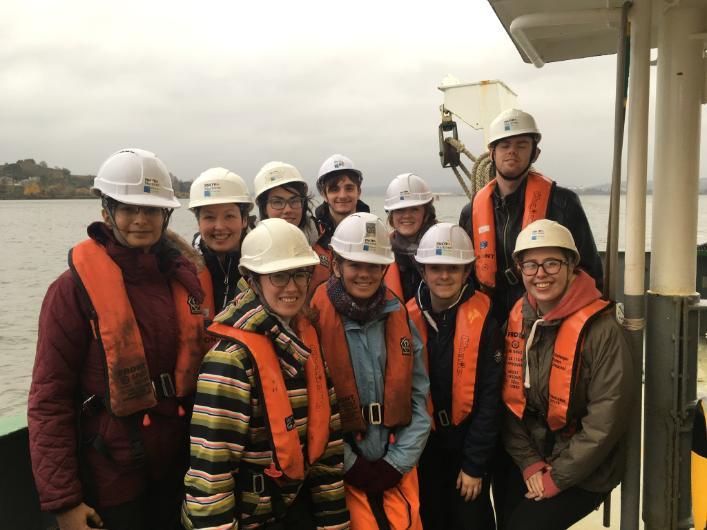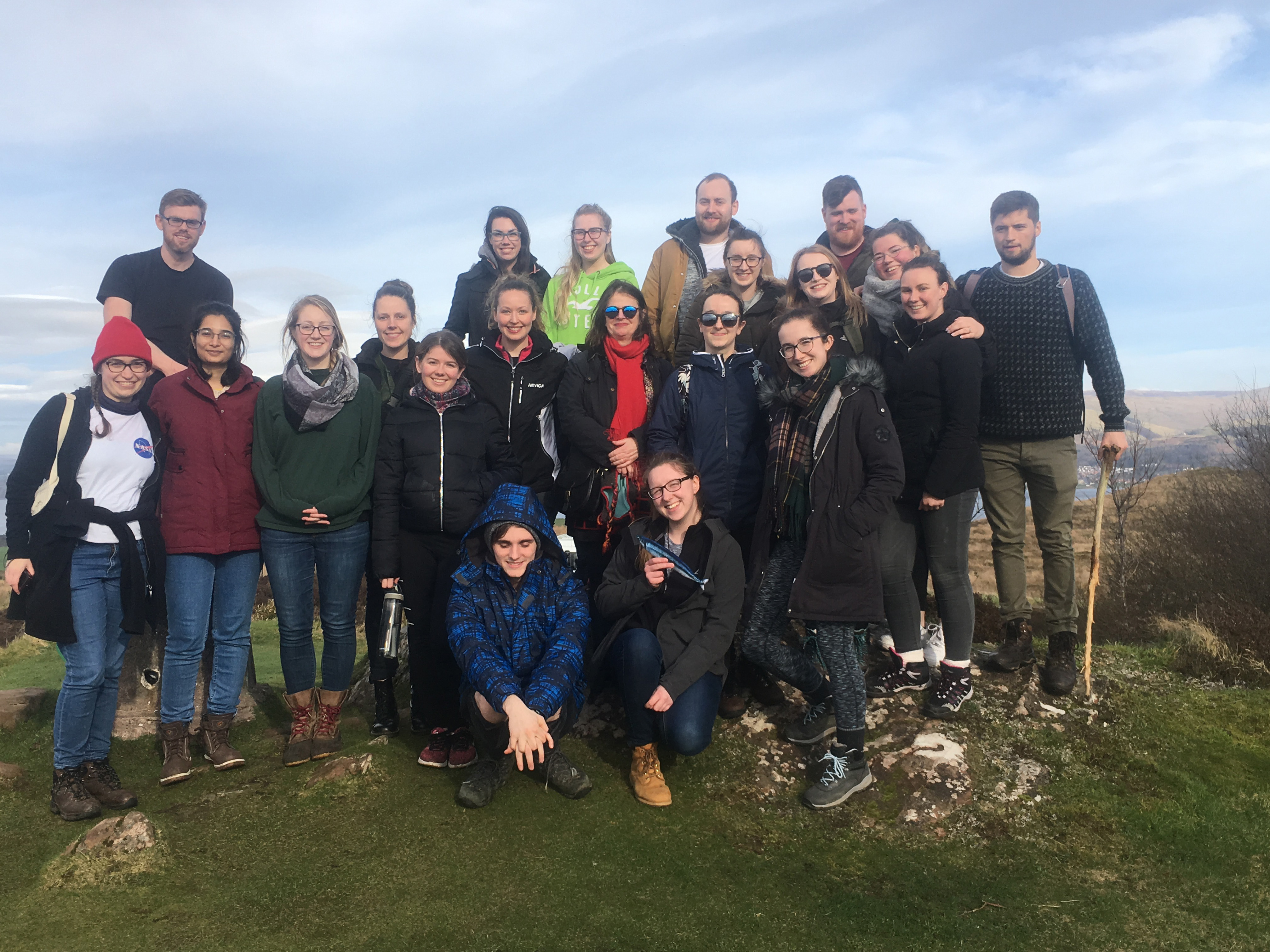Zaraa Malvat - MSc Marine Biology
“Sometimes all you need is 20 seconds of insane courage and I promise you something great will come of it.” - Benjamin Mee
It indeed took me some insane amount of courage to come to a completely different country so far away from home, and those 20 seconds have paid off brilliantly. It’s not an exaggeration when people say that Cork is Europe’s friendliest city, with everyone from teachers and fellow students to absolute strangers on the streets being extremely helpful and approachable.
I was a tad bit nervous at the start of the course, since the teaching and assessment methods were somewhat different from what I was used to, but I coped well and we’re already through the first semester! We covered mainly three modules during this semester – marine ecology, marine megafauna and fisheries and aquaculture. Marine megafauna and fisheries proved to be especially interesting for me, since I got to learn not only about the marine organisms, but also about the impacts of human activities on them and the laws and legislations in place. However, the coursework was nothing short of hectic, with loads of assignments to submit, deadlines to meet and over-caffeination. The assignments were very diverse, some requiring critical analysis and presentation of scientific papers, while others involving the use of statistical and simulation softwares and writing reports – preparing us for the real-world tasks we’d have to undertake as marine biologists.
I chose to study Marine Biology at UCC mainly because of its large fieldwork component, and I have not been disappointed. We’ve had several fieldtrips during the first semester, each involving a different aspect of marine biology. For me, the highlight of the semester was being on board the research vessel Celtic Voyager collecting samples, and then processing them in the laboratory for an entire day. It got pretty fishy at that point! Apart from that, we were required to carry out an ecological impact assessment at Garrettstown and even had the chance to visit BIM’s food processing unit – a completely different side of the fishing and aquaculture industry.
Needless to say, Cork is a beautiful city, and I took all the opportunities I had to step out despite the intense coursework. I especially enjoyed going for quiet walks in the Fitzgerald Park or by the Lough, pizza and pints with my fellow classmates at Franciscan Well, and quiz nights by the Harry Potter and the Genetics society at The Rock. I also discovered the perks of travelling solo during my visits to the beautiful town of Cobh and Fota wildlife park, and by getting lost in the streets of the city itself (yes, even with Google Maps).
The second semester appears to be more intense, but I am looking forward to all the seminars and presentations and more quiz nights and travelling...
Check out the online propsectus page for MSc Marine Biology

Picture: MSc Marine Biology students on board the Celtic Voyager
Zaraa Malvat - MSc Marine Biology
Blog Post 2
As they say, all good things must come to an end.
We are now at the final stages of the academic year, and looking back over the past 7 months has made me realise how amazing this journey has been. What started as a simple decision (minus the visa application process) of studying abroad has woven itself into a beautiful story of lifelong friendships, self discovery, smelly fish and snappy crabs.
The second semester was nothing short of intense, which massively helped in burning down that Christmas fat and also furnished some skills that would impress potential future employers. The semester began with a module on practical marine workplace skills, which involved trainings in radio communication, powerboat handling and sea survival. We also covered modules in genetics – which was my personal favourite, GIS and innovation and sustainability. The last module had us all thinking outside the box, and also gave us an idea of pitching and video editing.
The highlight of the second semester was the week-long residential field course that we had in Scotland. We stayed on the beautiful Isle of Cumbrae and spent almost a week surveying beaches for barnacle abundance, all glad for the amazing weather we got over those days out in the field. The field course also included a beam trawl survey for marine life, which led us to trying to identify the different species of brittle stars – which I must say is not an easy task, and the lovely opportunity of witnessing newly hatched baby cuttlefish – which I must say again are absolutely adorable.
Over the next few months, I shall be occupied with my dissertation which will be the final step for completing the MSc degree. For my dissertation, I will be looking at blood smears from gannets, and will try to see if there are any links between their blood condition and diet. Though the samples for my study have already been collected last year, I would still get the chance to go out and collect more samples to be used next year, which I am really looking forward to. A large part of my time over summer will be spent in the lab with a microscope for a companion, but the fieldwork at the end – which will involve trying to restrain majestic but aggressive gannets while the blood samples are being drawn – should prove to be the perfect ending to this amazing year.
As I have already mentioned in an earlier post, Cork is a beautiful city, and I am sure it’ll just get lovelier in summer. Though arranging any outings with my classmates would be a challenging task since everyone will soon be busy with their respective projects, I am really looking forward to any time together that we can manage. I cannot believe how fast the past few months have flown by, and though I am sad that it’ll all be over soon, I am really happy that I made the decision to come here and let the story happen – yes, even the parts with the smelly fish.
All good things must come to an end they say,
But who are they and what do they know?
For every end is a new beginning,
And every storm a chance to grow…

Picture: MSc Marine Biology students with Dr Ruth Ramsay on the Isle of Cumbrae Scotland. Photograph credit: Dr Rob McAllen
